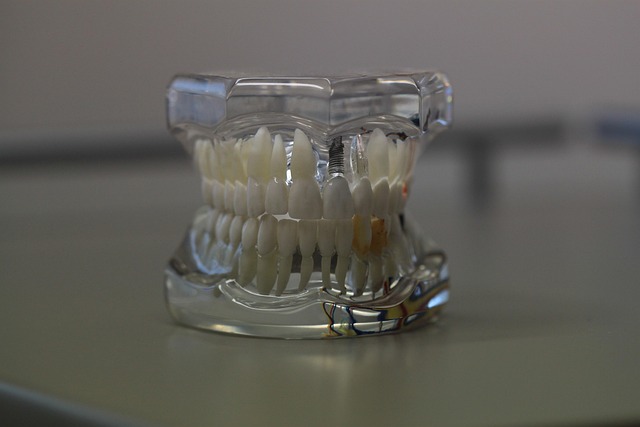Dental practices require comprehensive insurance to mitigate risks like liability claims, property damage, and data loss. Key coverage includes general/professional liability, property, workers' compensation, and business interruption insurance. Selecting the right policy involves understanding practice needs, comparing providers, and choosing competitive rates without sacrificing essential protection. Specialized dental insurance addresses unique risks like negligence lawsuits, patient injuries, and malpractice issues.
In the competitive world of dentistry, safeguarding your practice with comprehensive insurance is non-negotiable. Understanding and securing the right dental business insurance policy can protect your investment, staff, and patients from unexpected risks. This guide delves into essential aspects of dental practice coverage, including types of protection, risk management strategies, choosing the ideal policy, and common liability claims. By exploring these key areas, you’ll gain a vital tool for navigating the complexities of dental business insurance.
- Understanding Dental Business Insurance Needs
- Types of Coverage for Dental Practices
- Risk Management Strategies for Dentists
- How to Choose the Right Dental Insurance Policy
- Common Dental Business Liability Claims
- Protecting Your Practice: A Comprehensive Guide
Understanding Dental Business Insurance Needs

Running a successful dental business involves more than just providing excellent care; it also requires a robust risk management strategy, which includes having the right insurance coverage. Understanding your insurance needs is crucial to protect your practice and its future prospects. Dental businesses face unique risks due to their specialized nature, including potential liability claims, property damage, and loss of valuable equipment and records.
The right insurance policy for a dental business should cover general liability to protect against accidents or injuries on your premises, as well as professional liability to safeguard against errors or omissions in treatment. Additionally, property insurance is essential to guard against the loss or damage of physical assets like furniture, machinery, and medical equipment. Back-up data protection and business interruption coverage are also valuable additions, ensuring continuity and financial stability should unexpected events disrupt your operations.
Types of Coverage for Dental Practices

Dental practices require comprehensive insurance coverage to protect against various risks unique to the profession. One of the primary concerns is professional liability insurance, which shields dentists and their staff from claims of negligence or malpractice. This type of coverage is essential as it can safeguard assets, finances, and reputations in case of legal disputes.
Additionally, dental businesses should consider property insurance to protect their physical location, equipment, and inventory from damage or theft. This includes coverage for the building itself, dental instruments, furniture, and technology. Employees can also benefit from workers’ compensation insurance, which provides financial support to staff members injured on the job. Meanwhile, business income interruption insurance is valuable for dental practices as it compensates for lost revenue during periods of closure due to covered events like natural disasters or equipment failures.
Risk Management Strategies for Dentists

Risk management is an integral part of running a successful dental business, and one of the key components is securing the right insurance coverage. Dentists face unique challenges that require tailored policies to mitigate potential risks and financial losses. Insurance for dental businesses should encompass general liability to protect against accidents or injuries on the premises, as well as professional liability to cover errors or omissions during treatment.
Additionally, dental practices often deal with sensitive patient information, making data breach liability coverage essential. Equipment failure can lead to costly downtime, so equipment breakdown insurance is vital. Dental practitioners should also consider business interruption insurance to ensure financial stability in case of unforeseen events like natural disasters or pandemics that disrupt their operations.
How to Choose the Right Dental Insurance Policy

Selecting the optimal insurance policy for your dental business is a crucial step in securing its financial health and ensuring peace of mind. The process involves understanding your practice’s unique needs and identifying coverage that aligns with them. Start by evaluating the types of services you offer; whether general dentistry, specialty care, or both, as this will impact the scope of required coverage. Consider the size of your practice—a larger team may necessitate more comprehensive policies to cover multiple employees.
Additionally, assess the risks specific to dental practices, such as malpractice claims and equipment damage. Compare various insurance providers and their offerings, examining deductibles, premiums, and exclusions carefully. Opt for a policy that offers competitive rates without compromising on essential coverage. Remember, the right insurance for your dental business is one that provides adequate protection against potential losses while offering flexibility to adapt to your practice’s evolving needs.
Common Dental Business Liability Claims

Dental professionals often face unique risks and challenges that require specialized coverage. When it comes to protecting your dental business, understanding common liability claims is essential when choosing the right insurance policy. One of the primary concerns for dental practices is negligence-related lawsuits, where patients allege they suffered harm due to substandard care or treatment. This can include misdiagnosis, improper procedures, or even simple errors in record-keeping.
Another frequent claim involves patient injuries sustained during dental procedures. These incidents might range from accidental cuts or bites to more severe reactions to anesthetics. Additionally, dental businesses may face legal issues related to malpractice, professional negligence, or breach of contract, especially if there are disputes over treatment plans, billing practices, or patient consent forms. Insurance for dental businesses should address these potential risks to ensure comprehensive protection and peace of mind.
Protecting Your Practice: A Comprehensive Guide

Protecting your dental practice involves more than just maintaining a clean and safe environment; it’s crucial to have the right insurance for dental businesses in place. This comprehensive guide aims to equip you with the knowledge to navigate this essential aspect of running a successful dental practice. By understanding the various types of coverage available, you can make informed decisions that safeguard your assets, employees, and patients.
Choosing the right insurance policy means recognizing potential risks specific to the dental field, such as liability claims, property damage, or even loss of sensitive patient data. A robust dental business insurance package should include general liability coverage to protect against accidents or injuries occurring in your practice, professional liability insurance to safeguard against malpractice claims, and property insurance to mitigate risks associated with damage to your facilities and equipment. Remember, staying proactive in this area allows you to focus on providing quality care while ensuring peace of mind.
